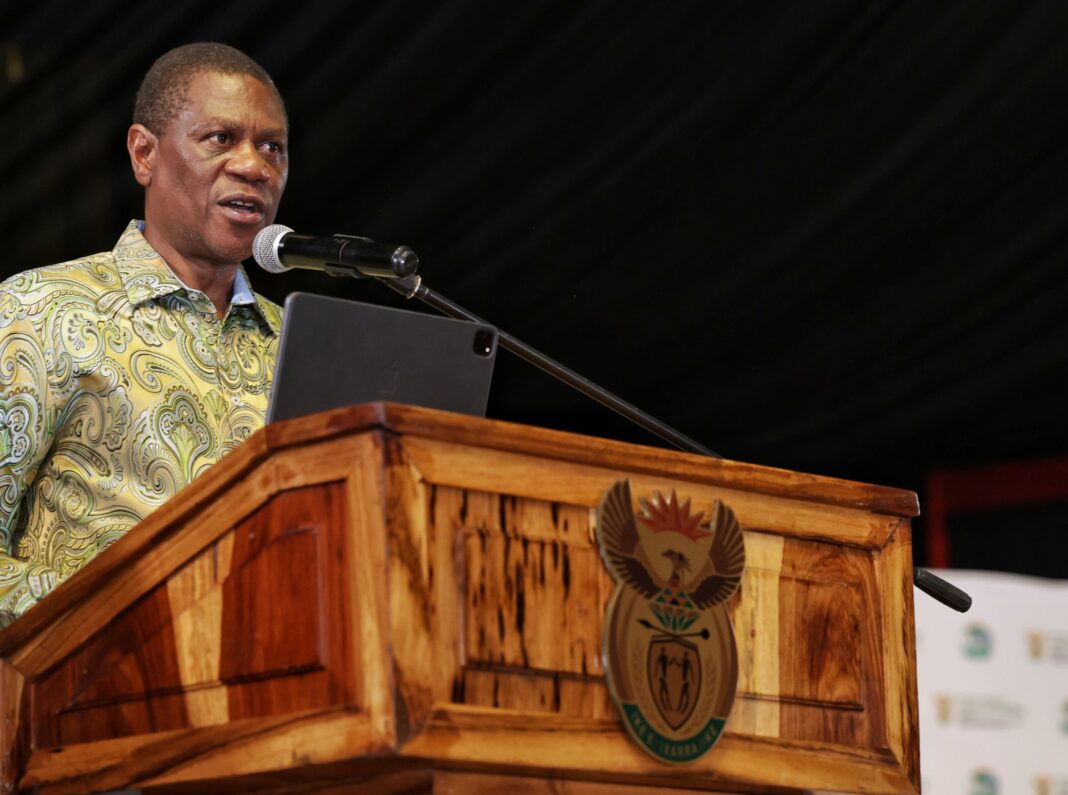By Thapelo Molefe
Deputy President Paul Mashatile has called for bold innovation in the fight against gender-based violence (GBV), urging South Africans to harness the power of technology to protect women and children.
Speaking at the launch of the 16 Days of Activism for No Violence Against Women and Children campaign in Rustenburg on Monday, Mashatile emphasised that technology could be a game-changer in tackling the scourge.
“From mobile apps to artificial intelligence, technology has the potential to save lives, connect victims to support and hold perpetrators accountable. We must use it to create safe spaces both online and offline,” he declared.
This year’s campaign also focuses on accelerating a gender inclusive digital economy.
Mashatile’s address centred on leveraging digital tools to combat GBV.
He highlighted the success of initiatives like the GBV Command Centre, a 24/7 helpline offering telephonic and digital support, and advocated for the development of real-time safety apps and AI-driven analysis to improve prevention and response efforts.
“The digital world presents risks, but it also provides solutions. We must make it a place where women and children feel safe and empowered,” he added.
While emphasising the role of technology, Mashatile also outlined the government’s broader strategy to combat GBV.
This approach included institutional strengthening through the establishment of the National Council on Gender-Based Violence and Femicide (NCGBVF) to coordinate efforts across sectors.
He said it prioritised economic empowerment to reduce vulnerabilities by creating jobs and leveraging preferential procurement to support women.
Additionally, the strategy focuses on data-driven policymaking, ensuring that interventions are informed by robust research and the lived experiences of survivors.
The deputy president highlighted progress such as the expansion of Thuthuzela Care Centres, legal reforms and clearing DNA backlogs, all aimed at delivering justice and support for survivors.
Mashatile made a passionate appeal to men and boys to challenge harmful behaviours and stereotypes, urging them to pledge their commitment to ending GBV.
“Men must stand as allies, speaking out against violence and fostering respect and equality in our society,” he said.
As the country embarked on its annual 16 Days of Activism campaign, Mashatile reminded the nation that tackling GBV required year-round commitment and collective action.
“Violence against women and children is not just a problem for some, it is a crisis for all of us. Together, we have the power to end it,” he concluded.
Social Development Minister Sisisi Tolashe took to the stage, her voice steady yet tinged with emotion.
“It is with mixed feelings that I stand before you,” she began.
“We celebrate the strides we’ve made, but after 30 years of democracy, the violence against women and children remains an epidemic. This means the majority of our people are not yet free.”
Tolashe outlined the campaign’s 2024 theme, “30 Years of Advancing Collective Action to End Violence Against Women and Children”, emphasising its focus on prevention and economic empowerment.
“We must tackle the root causes of this violence, economic dependence, cultural norms and harmful masculinities. That’s why we are fostering initiatives like Kuselega One-Stop Centres and training ambassadors to drive change in the hotspots of violence.”
Women, Youth and Persons with Disabilities Minister Sindisiwe Chikunga addressed the audience, placing the campaign within the broader historical struggle for gender equality.
“We must dismantle the patriarchal script that has conditioned society to view women as lesser, as expendable,” she declared.
“It is a script we must rewrite angrily if we must, aggressively if necessary, because without it, there will be no true equality.”
She noted that no single institution or individual could do this alone.
“Breaking the silence is our collective responsibility.”
INSIDE POLITICS



